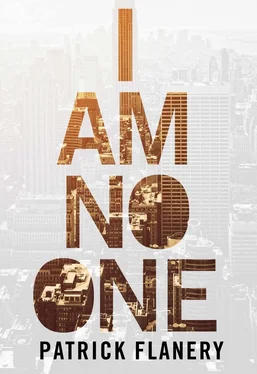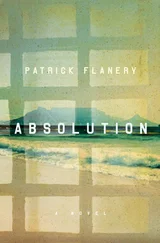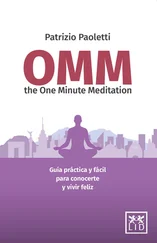When I found myself dozing I turned on the television, trying to slip into one of those thoughtless moods when the mind can rest on lives and concerns other than one’s own. I must not have found anything sufficiently distracting because my thoughts kept returning to the events of the week, trying to separate the fact of the surveillance to which I was subject (my God, someone is watching me at all times!) from the purpose (why would someone wish to track me so closely?) and the revelation itself ( who would want to make me aware of this surveillance and why would they do so?).
I had almost accepted the fact of the surveillance, and had a sense, now, that whatever I did, wherever I went, if I did so in ways that could be tracked (facial recognition software, financial traces, even my MetroCard, not to mention my online and phone activities), then someone would be collecting the data even if they were not necessarily analyzing it to look for patterns of behavior or suggestions that I might, in some preposterous way, be regarded as a threat to national security. I picked up the handset of my landline and spoke to the dial tone, or anyone who might be listening, insisting to them as much as to myself, ‘I have done nothing wrong, I am a blameless, guiltless person, a Professor of History at a reputable university in one of the world’s great cities. Why should I be concerned about the government monitoring my habits and communications and financial transactions if I have nothing to hide? A student said to me not long ago that privacy is for criminals, that only a criminal would think to demand privacy of his or her communications. I am not a criminal and still I demand privacy. I demand the right to be left alone, to be forgotten, to be a nonentity.’
Of course I knew this had something to do with the people I had known in Oxford, and perhaps also with what I had read online or carelessly written in emails or said over the phone during the course of the last decade. Over the coming two days I would begin to see these reasons with growing clarity, as I see them now, or suspect I see them, regardless of the ongoing imponderability of all that has happened. But at the time, on the last Friday in November, it was beyond my powers of analysis or imagination to guess who would wish to make me conscious of the surveillance and why he or she would risk alerting me to such an intrusion.
My first thought was that it must be directly connected to someone who already knew me, such as Stephen Jahn, who knew how to access my records and wished to do me the favor of warning me that I could not be assured of my privacy, as if he understood my sense of vulnerability when it comes to these matters. No, that is not the most accurate way of putting it. Rather, as if he understood that I have a particular neurosis about privacy, and one that, in the best Freudian fashion, took root in my childhood, in relation to my father. Is this, I wonder, the kind of trauma that Dr. Sebastian might have had in mind?
Though I loved him dearly, my father had an altogether different sense of privacy from my own, perhaps because he grew up poor on a farm, the middle child of seven siblings, so poor he shared a bed with his two older brothers and must have grown accustomed from a very early age to not having any true privacy. I, however, grew up with my own bed in my own room. Although not strictly my own, there was a family bathroom (one of four in the house), which I used by habit, where I bathed and showered, brushed my teeth morning and night, shat and pissed and, in my adolescence, masturbated. My father had enjoyed no such privacy as a child. His body was observed by his siblings, his pissing and shitting the business of the whole family as their pissing and shitting was his business, there being nothing but an outhouse for the first several years of his life, only later indoor plumbing arrived, and with it a competition for access that meant uninterrupted use of the facilities by one person was rare.
Because of this difference in our sense of what privacy meant, when I was a young child my father would come into the bathroom without knocking, even when the door was closed, even when I was on the toilet, and with no sense, initially, that this was strange or anything that should upset me until I began to lock the bathroom door whenever I went in. Oddly, rather than understanding what was going on, my wanting to shit and piss without worrying about whether the door would open during these most private activities, my father became irritated and demanded I not lock the door because there were, he insisted, ‘no secrets in our house.’ There followed a period of negotiation initiated by my mother and at last my father acquiesced and I was allowed to lock the bathroom door, satisfied that when I was at my most vulnerable no one was suddenly going to walk in and disturb me. There was, of course, a strong element of bodily shame at work. These intrusions coincided with my sense of not wanting my parents to see me naked, but while my mother seemed to understand this instinctively, for my father it remained almost incomprehensible. His own father and brothers had routinely seen him naked until, I suspect, quite late in his adolescence. The psychological consequence, for me, was longstanding, not to say permanent, so that whenever I use a public restroom I feel compelled to be sure the stall door will lock, or if it is a single unit that the door to the rest of the establishment locks securely. Similarly, visiting friends, I am often anxious about whether the bathroom door will lock, and when there has been no lock I have often gone to rather ridiculous lengths to make sure people know I am going to use the bathroom and if I find myself on the toilet in an unlocked bathroom and hear movement outside the door I will loudly cough or clear my throat so the person passing will have no doubt the room is occupied. A more well-adjusted man would simply not care, since what one man does in a bathroom is what any man or woman does, give or take small variations of habit and biology, but this neurosis about toileting privacy is ultimately about embarrassment and shame; while my father had no sense of bodily shame and no natural sense of privacy (at least in the domestic sphere) my mother was and remains a deeply private woman whose bare shoulders I do not think I saw until I was in my teens and the three of us took a vacation to Florida. Until that time I had never even glimpsed her in a swimming suit and was surprised, when the opportunity came, to see her shrink in on herself, pained by having to expose even modest amounts of skin.
Was it possible, I wondered, that the person who had tipped me off to the ways I was now being monitored had a sense of my neurosis in this matter? If that was the case, then he or she must have been someone who knew me well enough to have observed my behavior or to have been present when, for instance, I was lecturing on surveillance in East Germany, my field of expertise being, arguably, the most revealing thing about me. That someone should choose to focus his professional life on the history of surveillance in a particular country surely suggests he might be obsessed by ideas of surveillance and privacy to more than an ordinary degree. Of course, it struck me — later perhaps than it should — how anyone might take note of my neurosis about privacy simply by examining my scholarly record, accessible for anyone to see online at the department webpage, on any number of websites for conferences where I have spoken, in the catalogs of countless libraries where my books may be cross-referenced under various revealing subjects, not least among them being ‘surveillance’ of various forms and in several contexts, not limited of course to East Germany, which is to say I might be regarded not just as a surveillance neurotic but as one of the world’s leading experts on surveillance, and yet this is, somehow, not a central part of my mental world. I do not walk around thinking of myself as a surveillance expert, but rather as a historian of twentieth-century Europe and to a certain lesser degree as a political theorist or even philosopher. I had to acknowledge, though, sitting in my living room outside of Rhinebeck on a cold November afternoon, which had fallen into an even colder evening, that if someone wanted to make a point about government surveillance then I was, in a sense, among the most useful people to contact or target or make an example of, depending on what the impetus might be.
Читать дальше












